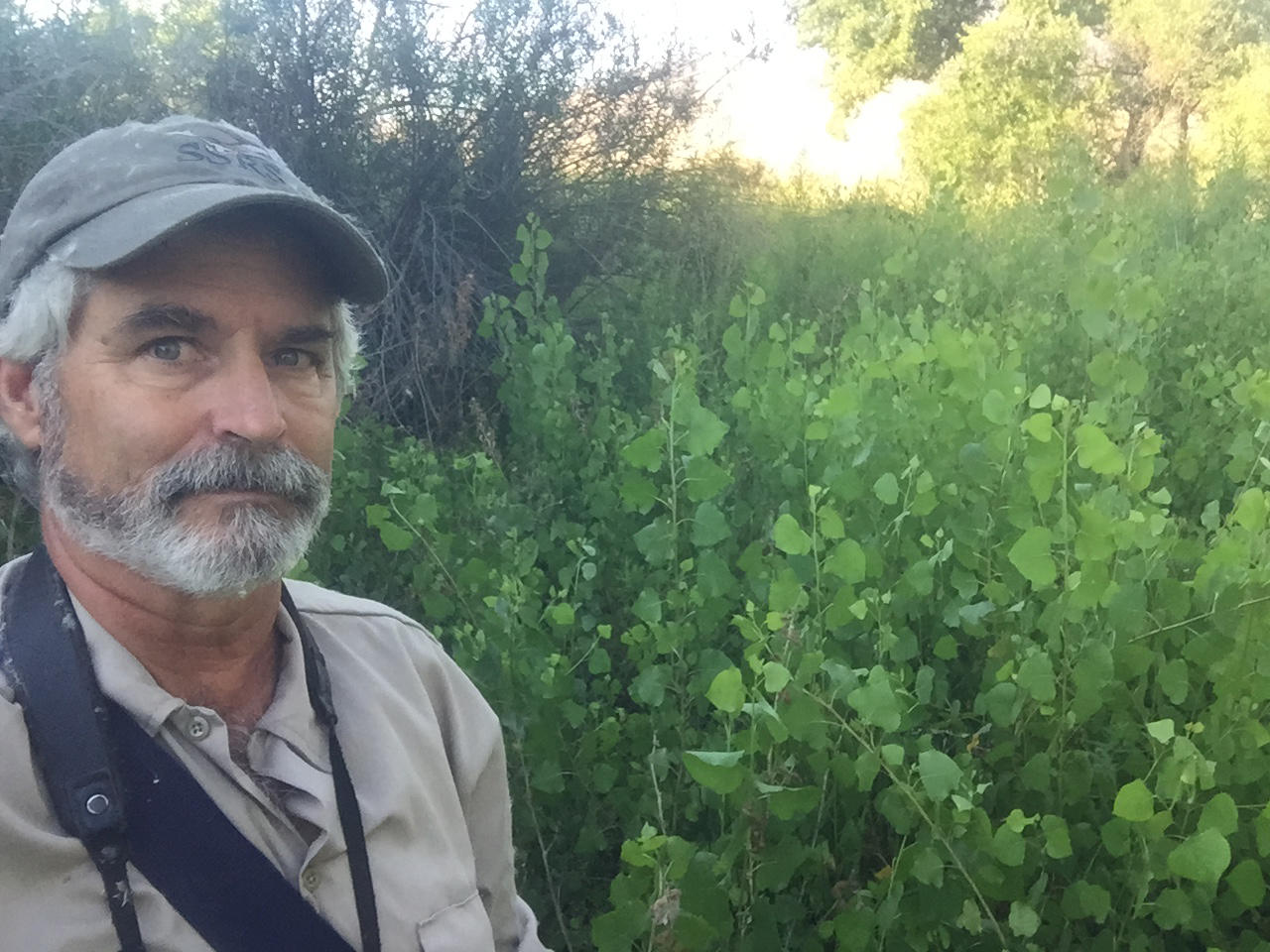Latest News and Updates from Audubon in California
California Condor. Photo: Scott Frier/USFWS

Reed Tollefson recently spotted some cottonwood saplings, a sign of regeneration at the Audubon Kern River Preserve.
After several years of drought the forest had some large patches of dead trees. These cottonwood saplings colonized a niche left by the dead trees after the 2016 flood. Floodwaters were followed by a decent amount of water in year two for these saplings. Baring another drought many of these young trees should thrive under Audubon’s stewardship.

Plumas Audubon has worked in partnership with the local school district to develop a fully integrated bird, native plants, and climate change program. At one school, each of the 55 fifth-grade students became an expert in a bird of their choice, participated in a Christmas Bird Count, and had at least one class outside almost every week (except in the dead of winter) to go birding. Read more about their unique program, which also included a day of planting native plants for birds.
This week, Senator John Barrasso (R-WY) released a draft bill to overhaul the Endangered Species Act. Barrasso chairs the Senate Environment and Public Works Committee and has worked with the Western Governors Association to draft the proposal. The “Endangered Species Act Amendments of 2018” is a discussion draft. In response to the proposal, Sarah Greenberger, Senior Vice President, Conservation Policy at National Audubon Society, issued the following statement:
“If you’ve ever seen a Bald Eagle or a Brown Pelican, you can thank the Endangered Species Act. The Endangered Species Act protects iconic American wildlife from extinction at a 99 percent success rate. But in the face of increasing threats from development, contaminants and a changing climate, we must do more to protect birds and other wildlife and the places they need to survive and thrive. First and foremost, conserving threatened and endangered species requires more resources, but it also requires a creative, science-based, bipartisan conversation on how we can improve conservation outcomes on the ground. We appreciate that the Western Governors Association has convened a thoughtful effort to tackle these issues, that Senator Barrasso wants to continue that conversation and has invited organizations like Audubon to offer our thoughts. We will review the discussion draft with that goal in mind – improving science-based conservation for birds now and into the future.”
More about Audubon’s work and the Endangered Species Act can be found here.
In a statement yesterday, The National Audubon Society praised the commitment to conservation in the 2018 Senate Farm Bill. The bill now moves to conference commitee where it will be reconciled with the House Farm Bill passed last week. Audubon urges robust conservation in the final bill.
“The Senate Farm Bill provides important tools to collaborate with producers on working landscapes to address bird habitat, water, and soil health needs,” said David O’Neill, Chief Conservation Officer for National Audubon Society. The National Audubon Society partners with private land managers on bird-friendly conservation strategies as part of the Working Lands Program.
The bill provides funding for the Regional Conservation Partnership Program (RCPP) to bring together farm and conservation groups for mutually benedical collaborations, such as Audubon California's work to protect the Tricolored Blackbird which is now listed as a Threatened under the California Endangered Species Act.
Read Audubon's full statement here and learn more about why the Senate's 2018 Farm Bill is good for birds.
For more on the RCPP and Tricolored Blackbirds in California check out this story from earlier this year.
Our newsletter is fun way to get our latest stories and important conservation updates from across the state.
Help secure the future for birds at risk from climate change, habitat loss and other threats. Your support will power our science, education, advocacy and on-the-ground conservation efforts.
Join the thousands of Californians that support the proposed Chuckwalla National Monument.